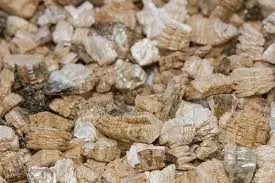Oct . 12, 2024 19:40 Back to list
Durable Outdoor Pipe Insulation Solutions for Maximum Energy Efficiency and Protection
High-Quality Outdoor Pipe Insulation Material A Comprehensive Guide
In today's world, where energy efficiency and environmental sustainability are paramount, the importance of insulating outdoor piping systems cannot be overstated. High-quality outdoor pipe insulation materials play a crucial role in maintaining energy efficiency, preventing heat loss, and protecting pipes from extreme weather conditions. This article delves into the significance of using top-notch insulation materials, their types, benefits, and installation considerations.
The Importance of Pipe Insulation
Pipes are essential for transporting fluids, whether in residential, commercial, or industrial settings. However, uninsulated pipes can lead to various problems, including heat loss, condensation, freezing, and even pipe bursts during colder months. High-quality insulation can prevent these issues, ensuring that systems operate efficiently. For instance, in colder climates, uninsulated pipes can freeze, causing extensive damage and expensive repairs.
Types of Outdoor Pipe Insulation Materials
When selecting insulation for outdoor pipes, various materials are available, each with distinct properties and benefits
1. Fiberglass Insulation This is one of the most commonly used materials for pipe insulation. Fiberglass is lightweight, has excellent thermal resistance, and is able to withstand high temperatures. It is especially effective for hot water pipes and can be used in both residential and industrial applications.
2. Polyethylene Foam Known for its excellent thermal properties and moisture resistance, polyethylene foam is ideal for insulating cold water pipes. It can effectively prevent condensation, which helps to reduce the risk of mold and mildew in areas around pipes.
3. Rubber Insulation This material is particularly versatile, suitable for both hot and cold water pipes. Rubber insulation can handle a wide temperature range and provides both thermal and acoustic insulation. Its elasticity allows it to fit snugly around pipes, reducing gaps that could lead to heat loss.
4. Mineral Wool (Rock Wool) Mineral wool is another good option for high-temperature applications. It is non-combustible, making it a safe choice for areas that may experience extreme heat. Additionally, it has excellent soundproofing qualities and can also resist moisture.
5. Reflective Insulation This type consists of a reflective surface, typically made from aluminum, which helps to reflect radiant heat away from the pipes. It's particularly useful in hot climates where the sun's heat can significantly affect exposed pipes.
Benefits of High-Quality Insulation
high quality outdoor pipe insulation material

Investing in high-quality outdoor pipe insulation materials offers numerous benefits
- Energy Savings By reducing heat loss and preventing the need for excessive heating or cooling, good insulation can lead to lower energy bills, making it an economical choice in the long run.
- Pipe Protection Insulation shields pipes from harsh weather conditions, preventing freezing in winter and reducing the risk of heat stress during summer. This protection extends the lifespan of the pipes.
- Condensation Reduction Quality insulation minimizes condensation on cold pipes, which in turn reduces the likelihood of mold growth and water damage in surrounding areas.
- Noise Reduction Insulated pipes can help diminish noise caused by water flow, contributing to a quieter environment.
Installation Considerations
When installing outdoor pipe insulation, proper installation is crucial for maximizing its benefits. Here are some considerations
- Correct Sizing Ensure the insulation material chosen is the correct size; it should fit snugly around the pipe with minimal gaps to prevent heat loss.
- Sealing Joints Use appropriate tape or adhesive to seal joints and seams. This ensures a continuous barrier against heat transfer.
- Weather Protection For outdoor applications, consider an additional protective layer (like a waterproof cover) to shield insulation from direct exposure to weather elements, which can deteriorate some materials over time.
Conclusion
High-quality outdoor pipe insulation materials are essential for ensuring efficient energy use and protecting plumbing systems from environmental hazards. By choosing the right insulation material and ensuring proper installation, homeowners and business operators can effectively safeguard their infrastructure against the effects of temperature variations, humidity, and noise. Investing in these materials not only enhances the durability of outdoor piping but also contributes to long-term energy savings and a more sustainable future.
-
Fe-C Composite Pellets for BOF: Enhance Steelmaking Efficiency
NewsAug.07,2025
-
Eco-Friendly Granule Covering Agent | Dust & Caking Control
NewsAug.06,2025
-
Fe-C Composite Pellets for BOF: High-Efficiency & Cost-Saving
NewsAug.05,2025
-
Premium Tundish Covering Agents Exporters | High Purity
NewsAug.04,2025
-
Fe-C Composite Pellets for BOF | Efficient & Economical
NewsAug.03,2025
-
Top Tundish Covering Agent Exporters | Premium Quality Solutions
NewsAug.02,2025
